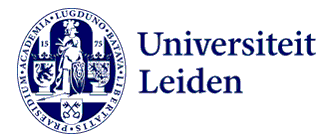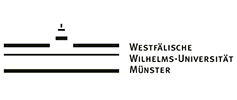Political Influence on the Constitutional Court in the Republic of Macedonia: Reflections through the Dissenting Opinions in the Period of 2012-2015
DOI:
https://doi.org/10.31078/consrev513Keywords:
Political Influence, Dissenting Opinion, Misconduct, Constitutional Court, JudgesAbstract
The demo Christian political party VMRO-DPMNE had a long period of ruling of the Republic of Macedonia, (2006-2016). During that period many cases of political pressure on the state institutions have occurred. The Constitutional Court wasn’t an excepted of that political pressure. Starting from the process of appointment of new judges, through the shocking decisions upon official citizens’ complaints and human rights appeals, to a complete reflection of the political interference and pressure through the dissenting opinions written and published by some constitutional judges. The former government has used all the tools, legal and non-legal, to put under control the Constitutional Court. If we put aside the political interference into the appointment of new and incompetent judges, one of the most used tools as a form of resistance was the dissenting opinion. This legal tool is present in the Book of Rules of the Constitutional Court of the Republic of Macedonia, but also in the legal systems in the Eastern Europe, Germany, Spain, Greece and all other states whose legal systems are created by the German legal system. It gives space and chance for one or several constitutional judges to express disagreement upon a decision brought by the majority in the court. This tool was frequently used by several judges from the Constitutional Court in the Republic Macedonia in the given period through which we can see strong political influence on their work. Therefore, the research questions are as follows: What were the “models” of political influence that were used on the Constitutional Court during the period of 2012-2015? How were they used and what are the dissenting opinions reflecting? To answer the said questions, the model of qualitative research will be used together with several dissenting opinions as case studies. The aim of this approach is to explain the different aspects of political influence on the work of the Constitutional Court within the given period. The findings of this research can be used for further development of the interest for researching of the work and role of the Constitutional Court in the Republic of Macedonia.References
Bricker, Benjamin, “Breaking the Principle of Secrecy: An Examination of Judicial Dissent in the European Constitutional Courts” (April 2017). Law & Policy 39, no. 2, 170-191, 2017. https://ssrn.com/abstract=2957933.
Carter, Stephen L., “Scalia, Antonin Dissenting: A Fragment on Religion.” Yale Law Journal 126, no. 6, April 2016. https://www.yalelawjournal.org/tribute/scalia-j-dissenting-a-fragment-on-religion.
Chapter XIV of the Ordinances of Medina, in New compilation of the Laws of Spain, Volume II, Official Gazette of the State 350 (1976) (Chapter XIV of the Ordenanzas de Medina, in Novíssima r ecompilación de las leyes de España,Tomo II, Boletín Oficial del Estado 350 (1976). Accessed 12 July 2018. http://pares.mcu.es/ParesBusquedas20/catalogo/description/184080.
Constitutional Court of Republic of Macedonia, "Short History." Accessed 8 August 2018. http://ustavensud.mk/?page_id=4603.
Constitutional Court of Republic of Macedonia. "Competencies of the Constitutional Court." Accessed 3 August 2018. http://ustavensud.mk/?page_id=4597.
Constitutional Court of Republic of Macedonia. "Rules of Procedure of the Court." Accessed 30 July 2018. http://ustavensud.mk/?page_id=4605.
Constitutional Court of Serbia. Accessed 30 July 2018. http://www.ustavni.sud.rs/.
Constitutional Court of Croatia. Accessed 30 July 2018. www.usud.hr.
Duvnjak, Gordana. “Уставен суд нова фаза [Constitutional Court, new phase].” Link last active 30.04.2017. Utrinski.com.mk.
European Commission. “Commission Staff Working Document.” Accessed 30 July 2018. https://ec.europa.eu/neighbourhood-enlargement/sites/near/files/pdf/key_documents/2016/20161109_report_the_former_yugoslav_republic_of_macedonia.pdf.
European Court of Human Rights, Case: Selmani and others against Republic of Macedonia, appeal number67259/14. Accessed 30 July 2018. https://hudoc.echr.coe.int/eng#{%22fulltext%22:[%22macedonia%22],%22appno%22:[%2267259/14%22],%22documentcollectionid2%22:[%22CLIN%22],%22kpdate%22:[%222017-02-09T00:00:00.0Z%22,%222017-02-09T00:00:00.0Z%22]}.
Fabbrini, Federico. “Kelsen in Paris: France’s constitutional reform and the introduction of a posteriori constitutional review of legislation.” German Law Journal 9, no.10 (2008): 1297-1312. http://diana-n.iue.it:8080/bitstream/handle/1814/20483/Fabbrini_GLJ_Kelsen%20in%20Paris.pdf?sequence=2&isAllowed=y.
Gaber Damjanovska, Natasha. “In defense of the Constitution and civilization values”. February 2016, Skopje, Republic of Macedonia. Accessed 5 August 2018. www.mcms.mk, www.scribd.com/people/documents/2996697.
Garoupa, Nuno, Gomez-Pomar,Fernando, Gremb, Veronica. “Judging under Political Pressure: An Empirical Analysis of Constitutional Review Voting in the Spanish Constitutional Court”, Illinois Law, Behavior and Social Science Research, Research Paper No. LBSS11-22, May, 2011, Electronic Paper Collection: http://papers.ssrn.com/pape.tar?abstract_id=.
Ginsburg, Tom, Garoupa, Nuno. “Building Reputation in Constitutional Courts: Political and Judicial Audiences”. 28 Arizona Journal of International and Comparative Law 539 (2011). https://chicagounbound.uchicago.edu/cgi/viewcontent.cgi?article=2441&context=journal_articles.
Ginsburg, Hon. Ruth Bader “The Role of Dissenting Opinion”s. Minnesota Law Review. http://www.minnesotalawreview.org/articles/the-role-of-dissentingopinions/.
Jakab, András.“Judicial reasoning in Constitutional Court – A European perspective.” German Law Journal 2, no. 29 (2013): 1215-1278. https:// static1.squarespace.com/static/56330ad3e4b0733dcc0c8495/t/56b1a89af8baf3f557170597/1454483611910/GLJ_Vol_14_No_08_Jakab.pdf.
Kеlemen, Katalin. “Dissenting opinions in Constitutional Courts.” German Law Journal 14, no.08 (2013): 9. https://static1.squarespace.com/static/56330ad3e4b0733dcc0c8495/t/56b1a900f8baf3f5571706ba/1454483714236/GLJ_Vol_14_No_08_Kelemen.pdf.
Laffranque, Julia. “Dissenting Opinion in the European Court of Justice.
Estonia’s Possible Contribution to the Democratisation of the European
Union Juridical System.” Juridica International 14 (2004): 14-23. juridica.ee/international_en.php?document=en/international/2004/1/75752.SUM.php>.
Lagi, Sara. “Hans Kelsen and the Austrian Constitutional Court (1918-1929).” i, Revista Co-herencia 9, no. 16 Enero - Junio 2012, 273-295. Medellín, Colombia (ISSN 1794-5887). http://www.scielo.org.co/pdf/cohe/v9n16/v9n16a10.pdf.
Lazarus, David, “The Supreme Court’s Excessive Secrecy: Why It Isn’t Merited”, Findlaw Legal News, Sept. 30,2004, http://writ.news.findlaw.com/lazarus/20040930.html.
Nagel, Robert F. “Political Pressure and Judging in Constitutional Cases”, 61 U. Colo. L. Rev. 685 (1990), available at http://scholar.law.colorado.edu/articles/916.
Preshova, Denis, „Македонски Уставен (Не) патриотизам„ [“Macedonian Constitutional (Un) Patriotism”], Политичка мисла бр. 35, Септември2011, 41-48, Political thought 35, Sept 2011, 41-48.
Preshova, Denis, Реформи на Уставниот суд или реформа на свеста? Реформа на институциите и нејзиното значење за развој на Република Македонија [Reforms of the Constitutional Court or reforms of consciousness? Reform of the institutions and its meaning for development of Republic of Macedonia].
Skopje: MANU, 2009, 171 – 202.
Sevrieva, Marija. “Уставниот суд ги укина измените на законот за помилување [The Constitutional Court have abolished the amendments on the Law on pardon].” Akademik, March 16 2016. Accessed 10.08.2018. https://www.akademik.mk/ustavniot-sud-gi-ukina-izmenite-na-zakonot-za-pomiluvanjeso-nego-se-ogranichuvalo-ustavnoto-pravo-na-pretsedatelot-na-rm/Sevrieva, Marija. “Објавени помилувањата [The abolition are published].”
Akademik, March 13, 2016. Accessed 10 August 2018. https://www.akademik.mk/objaveni-pomiluvanjata-gruevski-mijalkov-crvenkovski-obviniteli-vo-sjo/.
Sweet, Alec Stone, Constitutional Courts and Parliamentary Democracy (Special Issue on Delegation) (2002). Faculty Scholarship Series. Paper 84. http://digitalcommons.law.yale.edu/fss_papers/84.
The Constitutional Court of the Republic of Macedonia. “Short Biography of Dr. Natasha Gaber-Damjanovska.” goo.gl/5cm1jo.Transparency International. “Annual Report.” Accessed 2 August 2018. https://www.transparency.org/news/feature/corruption_perceptions_index_2017.
Venice Commission, “The Composition of Constitutional Courts, in Science and Technique of Democracy o.20pt.4.2.” 1997. Accessed 2 August 2018 http://www.venice.coe.int/webforms/documents/CDL-STD(1997)020.aspx.
Vörös, Imre. Dixi et salvavi. különvélemények, Párhuzamos indokolások [Dixi et salvavi. Dissenting and concurring opinions]. (2000).
Carter, Stephen L., “Scalia, Antonin Dissenting: A Fragment on Religion.” Yale Law Journal 126, no. 6, April 2016. https://www.yalelawjournal.org/tribute/scalia-j-dissenting-a-fragment-on-religion.
Chapter XIV of the Ordinances of Medina, in New compilation of the Laws of Spain, Volume II, Official Gazette of the State 350 (1976) (Chapter XIV of the Ordenanzas de Medina, in Novíssima r ecompilación de las leyes de España,Tomo II, Boletín Oficial del Estado 350 (1976). Accessed 12 July 2018. http://pares.mcu.es/ParesBusquedas20/catalogo/description/184080.
Constitutional Court of Republic of Macedonia, "Short History." Accessed 8 August 2018. http://ustavensud.mk/?page_id=4603.
Constitutional Court of Republic of Macedonia. "Competencies of the Constitutional Court." Accessed 3 August 2018. http://ustavensud.mk/?page_id=4597.
Constitutional Court of Republic of Macedonia. "Rules of Procedure of the Court." Accessed 30 July 2018. http://ustavensud.mk/?page_id=4605.
Constitutional Court of Serbia. Accessed 30 July 2018. http://www.ustavni.sud.rs/.
Constitutional Court of Croatia. Accessed 30 July 2018. www.usud.hr.
Duvnjak, Gordana. “Уставен суд нова фаза [Constitutional Court, new phase].” Link last active 30.04.2017. Utrinski.com.mk.
European Commission. “Commission Staff Working Document.” Accessed 30 July 2018. https://ec.europa.eu/neighbourhood-enlargement/sites/near/files/pdf/key_documents/2016/20161109_report_the_former_yugoslav_republic_of_macedonia.pdf.
European Court of Human Rights, Case: Selmani and others against Republic of Macedonia, appeal number67259/14. Accessed 30 July 2018. https://hudoc.echr.coe.int/eng#{%22fulltext%22:[%22macedonia%22],%22appno%22:[%2267259/14%22],%22documentcollectionid2%22:[%22CLIN%22],%22kpdate%22:[%222017-02-09T00:00:00.0Z%22,%222017-02-09T00:00:00.0Z%22]}.
Fabbrini, Federico. “Kelsen in Paris: France’s constitutional reform and the introduction of a posteriori constitutional review of legislation.” German Law Journal 9, no.10 (2008): 1297-1312. http://diana-n.iue.it:8080/bitstream/handle/1814/20483/Fabbrini_GLJ_Kelsen%20in%20Paris.pdf?sequence=2&isAllowed=y.
Gaber Damjanovska, Natasha. “In defense of the Constitution and civilization values”. February 2016, Skopje, Republic of Macedonia. Accessed 5 August 2018. www.mcms.mk, www.scribd.com/people/documents/2996697.
Garoupa, Nuno, Gomez-Pomar,Fernando, Gremb, Veronica. “Judging under Political Pressure: An Empirical Analysis of Constitutional Review Voting in the Spanish Constitutional Court”, Illinois Law, Behavior and Social Science Research, Research Paper No. LBSS11-22, May, 2011, Electronic Paper Collection: http://papers.ssrn.com/pape.tar?abstract_id=.
Ginsburg, Tom, Garoupa, Nuno. “Building Reputation in Constitutional Courts: Political and Judicial Audiences”. 28 Arizona Journal of International and Comparative Law 539 (2011). https://chicagounbound.uchicago.edu/cgi/viewcontent.cgi?article=2441&context=journal_articles.
Ginsburg, Hon. Ruth Bader “The Role of Dissenting Opinion”s. Minnesota Law Review. http://www.minnesotalawreview.org/articles/the-role-of-dissentingopinions/.
Jakab, András.“Judicial reasoning in Constitutional Court – A European perspective.” German Law Journal 2, no. 29 (2013): 1215-1278. https:// static1.squarespace.com/static/56330ad3e4b0733dcc0c8495/t/56b1a89af8baf3f557170597/1454483611910/GLJ_Vol_14_No_08_Jakab.pdf.
Kеlemen, Katalin. “Dissenting opinions in Constitutional Courts.” German Law Journal 14, no.08 (2013): 9. https://static1.squarespace.com/static/56330ad3e4b0733dcc0c8495/t/56b1a900f8baf3f5571706ba/1454483714236/GLJ_Vol_14_No_08_Kelemen.pdf.
Laffranque, Julia. “Dissenting Opinion in the European Court of Justice.
Estonia’s Possible Contribution to the Democratisation of the European
Union Juridical System.” Juridica International 14 (2004): 14-23. juridica.ee/international_en.php?document=en/international/2004/1/75752.SUM.php>.
Lagi, Sara. “Hans Kelsen and the Austrian Constitutional Court (1918-1929).” i, Revista Co-herencia 9, no. 16 Enero - Junio 2012, 273-295. Medellín, Colombia (ISSN 1794-5887). http://www.scielo.org.co/pdf/cohe/v9n16/v9n16a10.pdf.
Lazarus, David, “The Supreme Court’s Excessive Secrecy: Why It Isn’t Merited”, Findlaw Legal News, Sept. 30,2004, http://writ.news.findlaw.com/lazarus/20040930.html.
Nagel, Robert F. “Political Pressure and Judging in Constitutional Cases”, 61 U. Colo. L. Rev. 685 (1990), available at http://scholar.law.colorado.edu/articles/916.
Preshova, Denis, „Македонски Уставен (Не) патриотизам„ [“Macedonian Constitutional (Un) Patriotism”], Политичка мисла бр. 35, Септември2011, 41-48, Political thought 35, Sept 2011, 41-48.
Preshova, Denis, Реформи на Уставниот суд или реформа на свеста? Реформа на институциите и нејзиното значење за развој на Република Македонија [Reforms of the Constitutional Court or reforms of consciousness? Reform of the institutions and its meaning for development of Republic of Macedonia].
Skopje: MANU, 2009, 171 – 202.
Sevrieva, Marija. “Уставниот суд ги укина измените на законот за помилување [The Constitutional Court have abolished the amendments on the Law on pardon].” Akademik, March 16 2016. Accessed 10.08.2018. https://www.akademik.mk/ustavniot-sud-gi-ukina-izmenite-na-zakonot-za-pomiluvanjeso-nego-se-ogranichuvalo-ustavnoto-pravo-na-pretsedatelot-na-rm/Sevrieva, Marija. “Објавени помилувањата [The abolition are published].”
Akademik, March 13, 2016. Accessed 10 August 2018. https://www.akademik.mk/objaveni-pomiluvanjata-gruevski-mijalkov-crvenkovski-obviniteli-vo-sjo/.
Sweet, Alec Stone, Constitutional Courts and Parliamentary Democracy (Special Issue on Delegation) (2002). Faculty Scholarship Series. Paper 84. http://digitalcommons.law.yale.edu/fss_papers/84.
The Constitutional Court of the Republic of Macedonia. “Short Biography of Dr. Natasha Gaber-Damjanovska.” goo.gl/5cm1jo.Transparency International. “Annual Report.” Accessed 2 August 2018. https://www.transparency.org/news/feature/corruption_perceptions_index_2017.
Venice Commission, “The Composition of Constitutional Courts, in Science and Technique of Democracy o.20pt.4.2.” 1997. Accessed 2 August 2018 http://www.venice.coe.int/webforms/documents/CDL-STD(1997)020.aspx.
Vörös, Imre. Dixi et salvavi. különvélemények, Párhuzamos indokolások [Dixi et salvavi. Dissenting and concurring opinions]. (2000).
Downloads
Published
2019-05-31
How to Cite
Stojadinovic, S. (2019). Political Influence on the Constitutional Court in the Republic of Macedonia: Reflections through the Dissenting Opinions in the Period of 2012-2015. Constitutional Review, 5(1), 069–095. https://doi.org/10.31078/consrev513
Issue
Section
Articles
































































